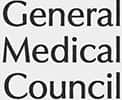A mini facelift is a partial version of a complete facelift and has become increasingly popular because it is less invasive than traditional facelift surgeries, with shortened recovery time and less scarring.
However, a mini facelift is still a surgical procedure. So, before deciding to undergo one, it’s essential to understand the benefits and drawbacks — and the potential alternatives.
What Is a Mini Facelift?
Although you might maintain your skin perfectly, your face will inevitably show signs of ageing, and mini facelifts are one of many ways people choose to rejuvenate their appearance.
A mini facelift is a relatively simple procedure focussed on lifting and tightening specific areas like the lower face, jawline, and sometimes the neck. The procedure involves small, discreet incisions near the ears to remove excess skin and subtly lift the underlying tissue. This creates a smoother, more youthful appearance without the extensive work of a full facelift.
Mini facelifts are done under local anaesthetic, reducing risks compared to a full facelift and also means a faster recovery. The surgery takes a few hours, and many patients resume daily activities within a week or two. The one-stitch facelift, a variation of the mini facelift, simplifies the process further by using a single suture to achieve a slight lift.
While the results aren’t as dramatic or long-lasting as a full facelift, a mini facelift effectively addresses mild to moderate signs of ageing. The procedure takes about two to three hours, with recovery typically lasting one to two weeks. During the healing process, you may experience mild swelling, visible bruising, and tightness.
This treatment is ideal for those aged 40-60 who want to address sagging in the lower face or jawline. Results usually last between five and seven years, depending on your skin, age, and lifestyle. After surgery, it’s essential to keep the surgical area clean, avoid driving for a few days, and refrain from strenuous activities for a few weeks. Be sure to follow up with your surgeon to ensure everything is healing properly.
Cost of a Mini Facelift
The cost of a mini facelift in the UK typically starts at a few thousand pounds. Several factors influence the final price, including the surgeon’s expertise, with more experienced professionals generally charging higher fees. The clinic’s location also plays a role, as prices tend to be higher in major cities like London.
Additional treatments — such as addressing the neck area or more intricate work — can increase the overall cost. Anaesthesia and facility fees will also impact the price, depending on the type of anaesthesia used and the medical facility where the surgery takes place. Finally, consultation and aftercare services may be included or incur additional charges, depending on the clinic.
The Pros and Cons of a Mini Facelift
The table below provides a quick comparison of a mini facelift’s key benefits and potential drawbacks to help you determine if it might be the solution for you.
| Pros | Cons |
| – Less invasive than a full facelift, with smaller incisions. | – Results may not last as long as a full facelift. |
| – Shorter recovery time, typically one to two weeks. | – Limited to addressing mild to moderate signs of ageing. |
| – Lower risk of complications due to smaller incisions and local anaesthesia. | – May not be suitable for those with more advanced signs of ageing. |
| – Natural-looking results with minimal scarring. | – Results may be less dramatic than a full facelift. |
| – More affordable than a traditional facelift. | – Risk of infection, especially if aftercare isn’t followed. |
| – Ideal for people seeking rejuvenation with minimal downtime. | – Higher cost per result compared to non-surgical options. |
Other Types of Facelifts
We have mentioned mini facelifts in comparison to traditional full facelifts, but what does a full facelift entail — and what other surgical options are there?
Full Facelift
A full facelift, or rhytidectomy, addresses more extensive signs of ageing across the face and neck. It involves lifting and tightening the deeper layers of skin and muscle with incisions typically made around the hairline, temples, and behind the ears.
- Surgical time: three to five hours
- Duration of results: 10–15 years
- Who it’s suited to: Individuals aged 50 and above
- Aftercare: Requires longer recovery, typically two to three weeks, with follow-up appointments and possible drainage tube removal. Limited activity is recommended during recovery.
Extended Facelift
An extended facelift is a more comprehensive version of the traditional facelift, targeting the lower face, neck, and jawline. This procedure provides a smoother, more youthful appearance for individuals with significant sagging or more mature facial structures.
While it offers longer-lasting results, the full recovery period is longer, with up to six months to see the full results of the surgery. The procedure is also more expensive than a standard facelift.
- Surgical time: four to six hours
- Duration of results: 10–15 years
- Who it’s suited to: Individuals aged 55+
- Aftercare: Similar to a full facelift, with extended downtime (four to six weeks), swelling management, and post-operative care.
Deep Plane Facelift
A deep plane facelift is a more advanced surgical option that targets deeper layers of the skin and underlying tissue. Unlike traditional facelifts, the deep plane technique lifts the skin and the facial muscles, resulting in more natural-looking results that last longer. This procedure is ideal for those with more advanced signs of ageing, particularly in the mid-face and jowl areas.
- Surgical time: four to six hours
- Duration of results: 5-10 years
- Who it’s suited to: Individuals aged 45–65
- Aftercare: There will be an extended recovery time (two to three weeks), with possible swelling and bruising. Follow-up visits for wound care are necessary.
Complications with Facelifts
As with any major surgery, face-lift surgery involves risks, including bleeding, infection, and potential reactions to anaesthesia. Certain medical conditions or lifestyle factors may also increase the likelihood of complications.
However, face-lift surgery may lead to specific complications that can cause noticeable changes in appearance, although they can be managed with medication, correct wound treatment or further surgery. These potential risks include:
Hematoma: This is the most common complication, where blood collects under the skin, causing swelling and pressure. It typically develops within 24 hours after surgery. Prompt surgical intervention can prevent damage to the skin and other tissues.
Scarring: Incision scars from a face-lift are permanent but are usually concealed by the hairline and the natural contours of the face and ear. In rare cases, scars may become raised, but treatments such as corticosteroid injections can help improve their appearance.
Nerve Injury: Although rare, nerve injury can occur, affecting sensation or muscle function. This may result in temporary or permanent changes, such as temporary numbness or an inability to move a facial muscle, leading to an uneven facial expression. Some improvement may be possible with surgery.
Hair Loss: Temporary or permanent hair loss near the incision sites may occur. Permanent hair loss can be addressed with hair follicle transplantation surgery.
Skin Loss: In rare instances, a facelift may disrupt blood flow to facial tissues, causing skin loss. This can be managed with medication and proper wound care, and additional procedures may be required to reduce scarring.
Non-invasive Facelifts
However, there are non-invasive facelift options available. At Harley Street MD we offer an advanced facelift without surgery known as the 8-point facelift. Ideal for individuals aged 35 and older, the procedure was created by Brazilian plastic surgeon Mauricio de Ma to target the eight key areas of the face that are prone to looseness as we age.
Using dermal filler, we restore volume in the areas most needed for a subtle but complete makeover, resulting in a youthful and rejuvenated appearance. This careful approach, which brings a balanced lift that looks natural, offers immediate results with zero scarring.
You will see results immediately, although there may be slight swelling. The procedure typically takes 30–45 minutes, with results lasting between 9 to 18 months. After the procedure, it’s recommended to avoid strenuous activities for one to two days to ensure proper healing. You will see results immediately, although there may be slight swelling. Make sure to avoid heavy lifting and high-temperature surroundings like saunas for a week.
You can adjust your treatment by consulting our skilled team and planning any follow-ups. Additionally, as the 8-point facelift is non-invasive, recovery time is minimal compared to any surgical procedure. Overall, it’s an ideal option for individuals seeking subtle enhancements without committing to long-term changes.
This approach is particularly suited for those in their late 30s to 50s, as it effectively addresses early to moderate signs of ageing, such as volume loss and sagging, without radical changes. If you’re seeking a quick rejuvenation, the 8-point facelift provides a natural-looking lift that accentuates your features.
Pick a Facelift That Matches Your Needs
A facelift is a major decision that can have effective and long-lasting results. Whether a mini facelift is for you will depend on your expectations and whether a less invasive procedure would better suit your needs.
Ultimately, you need to fully explore your options and speak with a dedicated cosmetic specialist to make an informed decision. At Harley Street MD, we can discuss your unique needs in a consultation and see if our non-invasive facelift option would meet them.
FAQs
What is a mini facelift?
A mini facelift is a less invasive procedure compared to a full facelift. It focuses on lifting and tightening specific areas like the lower face, jawline, and sometimes the neck, using small incisions near the ears. This results in a smoother, more youthful appearance with a shorter recovery time and less scarring.
How long does a mini facelift take?
The procedure typically lasts between two to three hours, and many patients resume daily activities within one to two weeks.
What is the cost of a mini facelift in the UK?
The cost of a mini facelift in the UK varies depending on factors like the surgeon’s expertise, the clinic’s location, and the complexity of the procedure. On average, it can range from a few thousand pounds up to £10,000.
Is a mini facelift worth it?
A mini facelift can be worth it for individuals with mild to moderate signs of ageing who want subtle improvements without the lengthy recovery of a full facelift. The procedure offers a natural-looking lift, shorter downtime, and a more affordable alternative to traditional facelifts.
What are the side effects of a mini facelift?
Common side effects include mild swelling, visible bruising, and tightness around the treated areas. These typically subside within a couple of weeks.
Can I get a facelift without surgery?
Yes, non-invasive facelift options, such as the 8-point facelift, are available. These procedures use dermal fillers to restore volume and lift key areas of the face, providing subtle results with minimal downtime and no scarring.
References
Chaffoo RA. Complications in facelift surgery: Avoidance and management. Facial Plastic Surgery Clinics of North America. 2013;21:551. From: NIH
Neligan PC, et al., eds. Facelift: Principles of and surgical approaches to facelift. In: Plastic Surgery. 4th ed. London, U.K.: Elsevier; 2018. From: Mayo Clinic













